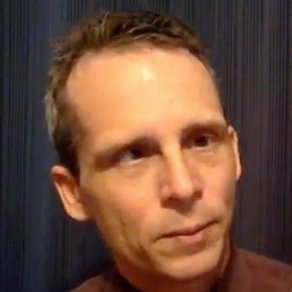"Cameron and Roark and a pot of black coffee
had lived in the office from dawn till
frozen dawn for many days..."
had lived in the office from dawn till
frozen dawn for many days..."
Despite Ayn Rand's novels being based on the theme of objective rationality, there is a recurring plot element that I find neither objective nor rational: namely, great accomplishments being achieved by characters under prolonged conditions of sleep deprivation.
For example, take this scene from her novel The Fountainhead:
"Cameron and Roark and a pot of black coffee had lived in the office from dawn till frozen dawn for many days, and Cameron had thought involuntarily of the electric bill, but made himself forget it. The lights still burned in the drafting room in the early hours when he sent Roark out for sandwiches, and Roark found gray morning in the streets while it was still night in the office, in the windows facing a high brick wall. On the last day, it was Roark who had ordered Cameron home after midnight, because Cameron’s hands were jerking and his knees kept seeking the tall drafting stool for support, leaning against it with a slow, cautious, sickening precision. Roark had taken him down to a taxi and in the light of a street lamp Cameron had seen Roark’s face, drawn, the eyes kept wide artificially, the lips dry. The next morning Cameron had entered the drafting room, and found the coffee pot on the floor, on its side over a black puddle, and Roark's hand in the puddle, palm up, fingers half closed, Roark's body stretched out on the floor, his head thrown back, fast asleep."
This is what Ayn Rand calls the "ideal man."
Despite collapsing from exhaustion, Roark somehow produces architectural drawings considered to be the boldest and most innovative of all his contemporaries.
While caffeine can certainly keep you awake and oblivious to the body's screaming need for sleep — it does not counter the negative effects of sleep deprivation on brain function. Being awake for just eighteen hours has been shown to impair your mental faculties as much as having a blood alcohol level of 0.05%. Six more hours of sleep deprivation doubles that. Yes, being awake for 24 hours straight is the equivalent of a blood alcohol level of 0.10%.
To put that in perspective, in my province of Ontario, a blood alcohol level above 0.08% will result in a criminal driving conviction.
Certainly not the best mental conditions for drafting the world's greatest buildings.
I'm all for hard work. I often work seven days a week. But I also know if I don't get eight hours of sleep each of those days, I start making time-consuming blunders, while producing sub-par results. In contrast, if I'm well rested, ideas flow easily and I get things done more quickly (unless I have too many good ideas). Plus, I enjoy my work so much more.
Of course, I'm all for sleeping as little as one needs. And one of the ways I've found that helps me sleep deeply, and hence less, is by strapping on an eye mask.
But not just any eye mask. I've tried many. Most of them "leak" light around the edges. By far, the best eye masks ever designed must be the line of full black-out masks from Bon Charge. They produce such a tight seal, it's as if you've gone blind. Their masks have hollow eye cavities that do not put pressure on your eyes. And they do not use an elastic band, which tends to wear out and either be too tight or loose.
I bought one of their masks three years ago, and it's still providing blissful darkness each night — helping me wake up refreshed for another creative and productive day.
You can check out Bon Charge's Black Out Masks here (enter code BPC for a 15% discount): https://ca.boncharge.com/collections/black-out-sleep-masks/products?rfsn=7718850.050263
You can tell that the designer who came up with these bold and innovative eye masks didn't wake up the next morning on the floor in puddles of cold coffee.
John C.A. Manley
 John C. A. Manley is the author of Much Ado About Corona, All The Humans Are Sleeping and other works of philosophical fiction that are "so completely engaging that you find yourself alternately laughing, gasping, hanging on for dear life." Get free samples of his stories by becoming a Blazing Pine Cone email subscriber.
John C. A. Manley is the author of Much Ado About Corona, All The Humans Are Sleeping and other works of philosophical fiction that are "so completely engaging that you find yourself alternately laughing, gasping, hanging on for dear life." Get free samples of his stories by becoming a Blazing Pine Cone email subscriber.

